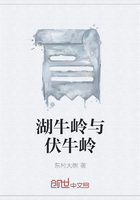SIR HOWARD. As to your inheritance, sir, it was yours whenever you came forward to claim it. Three minutes ago I did not know of your existence. I affirm that most solemnly. I never knew--never dreamt--that my brother Miles left a son. As to your mother, her case was a hard one--perhaps the hardest that has come within even my experience. I mentioned it, as such, to Mr. Rankin, the missionary, the evening we met you. As to her death, you know--you MUST know--that she died in her native country, years after our last meeting. Perhaps you were too young to know that she could hardly have expected to live long.
BRASSBOUND. You mean that she drank.
SIR HOWARD. I did not say so. I do not think she was always accountable for what she did.
BRASSBOUND. Yes: she was mad too; and whether drink drove her to madness or madness drove her to drink matters little. The question is, who drove her to both?
SIR HOWARD. I presume the dishonest agent who seized her estate did. I repeat, it was a hard case--a frightful injustice. But it could not be remedied.
BRASSBOUND. You told her so. When she would not take that false answer you drove her from your doors. When she exposed you in the street and threatened to take with her own hands the redress the law denied her, you had her imprisoned, and forced her to write you an apology and leave the country to regain her liberty and save herself from a lunatic asylum. And when she was gone, and dead, and forgotten, you found for yourself the remedy you could not find for her. You recovered the estate easily enough then, robber and rascal that you are. Did he tell the missionary that, Lady Cicely, eh?
LADY CICELY (sympathetically). Poor woman! (To Sir Howard)Couldn't you have helped her, Howard?
SIR HOWARD. No. This man may be ignorant enough to suppose that when I was a struggling barrister I could do everything I did when I was Attorney General. You know better. There is some excuse for his mother. She was an uneducated Brazilian, knowing nothing of English society, and driven mad by injustice.
BRASSBOUND. Your defence--
SIR HOWARD (interrupting him determinedly). I do not defend myself. I call on you to obey the law.
BRASSBOUND. I intend to do so. The law of the Atlas Mountains is administered by the Sheikh Sidi el Assif. He will be here within an hour. He is a judge like yourself. You can talk law to him. He will give you both the law and the prophets.
SIR HOWARD. Does he know what the power of England is?
BRASSBOUND. He knows that the Mahdi killed my master Gordon, and that the Mahdi died in his bed and went to paradise.
SIR HOWARD. Then he knows also that England's vengeance was on the Mahdi's track.
BRASSBOUND. Ay, on the track of the railway from the Cape to Cairo. Who are you, that a nation should go to war for you? If you are missing, what will your newspapers say? A foolhardy tourist. What will your learned friends at the bar say? That it was time for you to make room for younger and better men. YOU a national hero! You had better find a goldfield in the Atlas Mountains. Then all the governments of Europe will rush to your rescue. Until then, take care of yourself; for you are going to see at last the hypocrisy in the sanctimonious speech of the judge who is sentencing you, instead of the despair in the white face of the wretch you are recommending to the mercy of your God.
SIR HOWARD (deeply and personally offended by this slight to his profession, and for the first time throwing away his assumed dignity and rising to approach Brassbound with his fists clenched; so that Lady Cicely lifts one eye from her work to assure herself that the table is between them). I have no more to say to you, sir. I am not afraid of you, nor of any bandit with whom you may be in league. As to your property, it is ready for you as soon as you come to your senses and claim it as your father's heir. Commit a crime, and you will become an outlaw, and not only lose the property, but shut the doors of civilization against yourself for ever.
BRASSBOUND. I will not sell my mother's revenge for ten properties.
LADY CICELY (placidly). Besides, really, Howard, as the property now costs 150 pounds a year to keep up instead of bringing in anything, I am afraid it would not be of much use to him.
(Brassbound stands amazed at this revelation.)SIR HOWARD (taken aback). I must say, Cicely, I think you might have chosen a more suitable moment to mention that fact.
BRASSBOUND (with disgust). Agh! Trickster! Lawyer! Even the price you offer for your life is to be paid in false coin. (Calling)Hallo there! Johnson! Redbrook! Some of you there! (To Sir Howard) You ask for a little privacy: you shall have it. I will not endure the company of such a fellow--SIR HOWARD (very angry, and full of the crustiest pluck). You insult me, sir. You are a rascal. You are a rascal.
Johnson, Redbrook, and a few others come in through the arch.
BRASSBOUND. Take this man away.
JOHNSON. Where are we to put him?
BRASSBOUND. Put him where you please so long as you can find him when he is wanted.
SIR HOWARD. You will be laid by the heels yet, my friend.
REDBROOK (with cheerful tact). Tut tut, Sir Howard: what's the use of talking back? Come along: we'll make you comfortable.
Sir Howard goes out through the arch between Johnson and Redbrook, muttering wrathfully. The rest, except Brassbound and Lady Cicely, follow.
Brassbound walks up and down the room, nursing his indignation. In doing so he unconsciously enters upon an unequal contest with Lady Cicely, who sits quietly stitching. It soon becomes clear that a tranquil woman can go on sewing longer than an angry man can go on fuming. Further, it begins to dawn on Brassbound's wrath-blurred perception that Lady Cicely has at some unnoticed stage in the proceedings finished Marzo's bandage, and is now stitching a coat.
He stops; glances at his shirtsleeves; finally realizes the situation.
BRASSBOUND. What are you doing there, madam?
LADY CICELY. Mending your coat, Captain Brassbound.
BRASSBOUND. I have no recollection of asking you to take that trouble.















